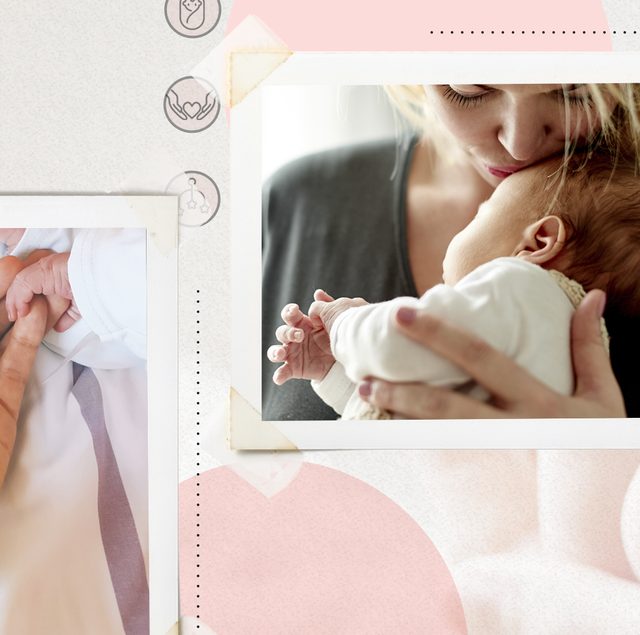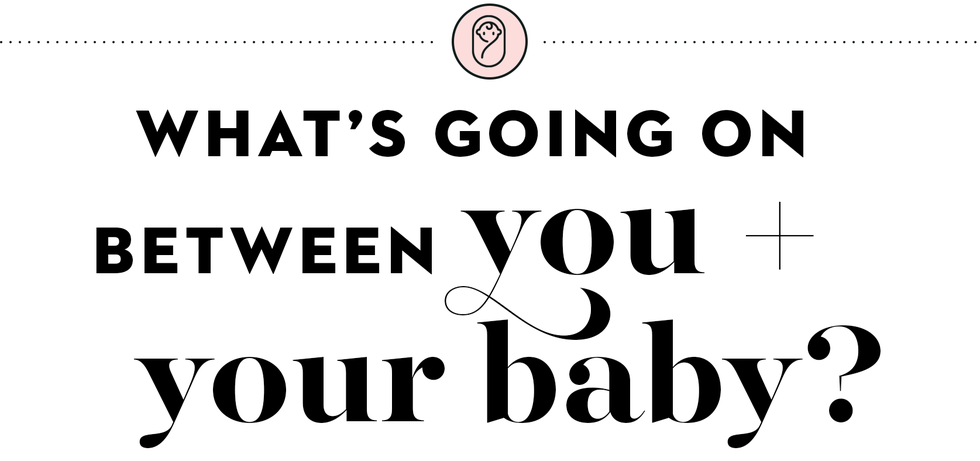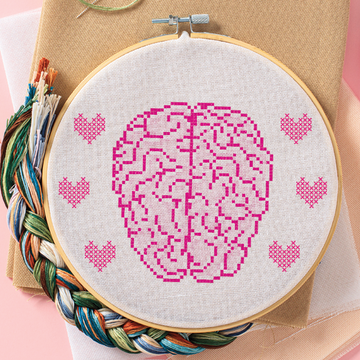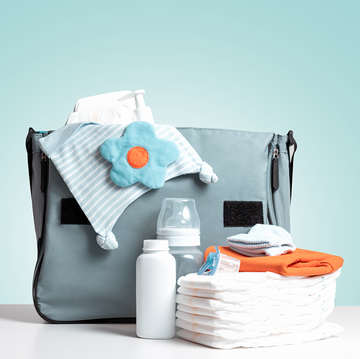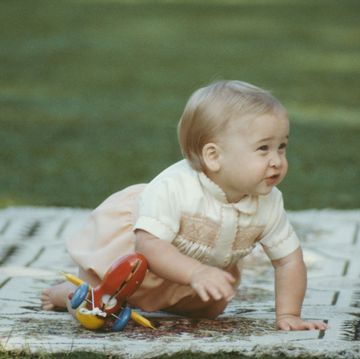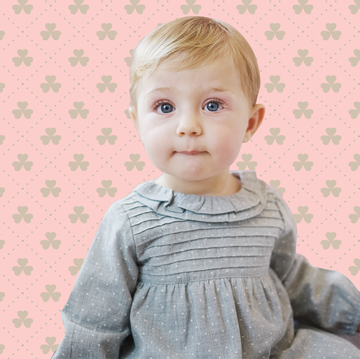Everyone’s right when they tell you that it all changes the instant you give birth and hold your (goopy and wailing) child for the first time. But, people also sell it to you as a moment when you instantly feel bonded with baby, your maternal instincts kick into high gear, and you’ll probably be able to zip your pre-baby jeans in a week.
Let me tell you from experience: None of that is true. For me, it was more like I was holding a healthy, wonderful stranger; I bumbled my way through breastfeeding; and those jeans took a long, long time to get back on — heck, it took a long time to be able to sit normally again, let alone do so while wearing constrictive pants.
Honestly, when it comes to postpartum care and postpartum recovery, you’re left high and dry once you get home from the hospital. Your ob-gyn will tell you to make an appointment for six weeks after the birth to check on your physical recovery. Six weeks! A lot happens in that time, physically, mentally, and emotionally.
That’s one reason why The American College of Obstetricians and Gynecologists (ACOG) released a recommendation in 2018 that postpartum care is an ongoing process and that women and their ob-gyn should touch base within the first three weeks postpartum.
“There’s this mismatch between the attention, help, and care heaped upon women in the last weeks of pregnancy and the dropkick they get out the door after delivery,” says Alison Stuebe, M.D., lead author of the ACOG committee opinion and associate professor of obstetrics and gynecology at the UNC School of Medicine. (She’s also a leader of the university’s 4th Trimester Project.) She describes the process like this: “Think of it like the baby is the candy and mom is the wrapper. Once the candy is out, the wrapper gets tossed,” she says.
That’s a terrible feeling. And because of that, the changes that await you, body and mind, may take you by surprise. Dr. Stuebe notes few women knew what physical and emotional changes to expect — from hair loss to hemorrhoids to moodiness and anxiety. Let’s fix that. Here’s what’s really happening in the first six weeks.
The first bathroom trip is a doozy.
A good friend warned me that my vulva would look like “two hamburger buns” following a vaginal birth. Verdict? Truth. First, though, you have to get to the bathroom to catch a glimpse. Particularly if you opted for an epidural and may now have shaky Bambi legs, a nurse will walk you to the bathroom for the first pee; on your way there, some fluids may trickle out as well. This is the moment when nurses will introduce you to the peri bottle to squirt water on the area to clean off, which you'll have to use even after you get home from the hospital.
Then she'll outfit you with a bigger-than-you've-ever-seen pad, probably slap a few Tucks cooling pads on top, and then help you get into the giant white mesh boy shorts. Be prepared to need to use pads for weeks — this is technically “vaginal discharge” called lochia, which goes from dark red to pink and brown to white and yellow; the flow eventually lightens into spotting, which doesn’t stop until four to six weeks after delivery. You’ll have lochia whether you gave birth vaginally or via C-section. To prevent any white-pant problems, remember: “It’s not a period, it’s a baby, so keep that pad on even when you think the bleeding has stopped,” Dr. Stuebe says.
It might burn when you pee.
If you had a tear close to your urethra (or where you urinate), it may burn something fierce when you pee. Some crotch fire is to be expected, but if it persists, then talk to your doctor, as it can indicate an infection, says Christine Greves, M.D., an ob-gyn at the Winnie Palmer Hospital for Women and babies in Orlando, FL. Similarly, it might hurt to even sit down for a while.
(It’s truly impressive when a woman who recently gave birth can sit up and cross her legs.) Not everyone will have issues, but for comfort you may need to sit on one of those donut pillows designed for hemorrhoids. (And while we’re on that topic, you might have those, too.)
The first poop is the worst.
The idea of it freaked me out because I was convinced a BM would rip my stitches out. Good news! You will be okay. Granted, the fears are normal: “The area is incredibly sensitive, the last thing you’ll want to do is wipe or touch anything down there. Besides, pregnancy is often a state of constipation for many women,” which can make pooping even more problematic, Dr. Greves says. Take the stool softeners they give you at the hospital and continue to take them until the first bowel movement. You will get through it.
Contractions don’t stop.
Birth is not the end of the contractions. Postpartum contractions stick around for two to three days, and tend to be more noticeable for subsequent pregnancies. The pain can range from slightly mild to painful menstrual-like cramps. “These contractions occur to protect you — it’s how the body tries to get the uterus back to its normal size,” Dr. Greves says. They will be worse if you choose to breastfeed. “Breastfeeding triggers the hormone oxytocin, which also makes the uterus contract,” she says.
Don’t try to push through.
There are some post-birth warning signs, like chest pain, blood clots the size of an egg, or a headache accompanied by vision changes that are not normal for postpartum moms. The Association of Women’s Health, Obstetric and Neonatal Nurses outlines these troubling symptoms here. Knowing them could save your life; if you have to go to the ER for any reason, tell the triage nurse you recently gave birth, Dr. Stuebe notes.
You’re on a hormone rollercoaster.
You love your new little squish, but man you might feel sad, anxious, or trapped in your new life. “Estrogen and progesterone levels, which are high during pregnancy, plummet after birth,” Dr. Stuebe says. Due to pregnancy hormone levels (namely progesterone), pregnant moms have what she describes as a steady stream of relaxation-inducing (natural) valium in the brain. After delivery, this stops. That’s partly why many women say the fourth day postpartum is when their mood takes a dive and the baby blues kick in. Consider everything that’s changing: that “natural valium” has stopped, so your brain is recalibrating; your breasts are transitioning from producing colostrum to milk; and now you’re home from the hospital and slapped in the face with the realities of caring for an infant. It’s all a lot at once. Make sure you have some extra support on day four to weather the storm.
You may lose sight of yourself.
The challenges of adopting to a new life might take you by surprise. For me, I felt happy that my baby was finally here, but after both deliveries I felt such a sense of sadness that I was no longer pregnant. The transition to a new identity is tough. “One mom I talked to said ‘I used to be Sarah, but now I’m Jake’s mom.'
That’s a huge identity shift, and now you have to determine where you fit in,” Dr. Stuebe says. And let’s be honest, your body looks different, too. It’s difficult to stand in front of the mirror with a still-rounded tummy, engorged breasts, saggy skin, and see you staring back. It’s something we all struggle with, but keeping in mind that bodies were meant to change throughout different stages of life may provide some perspective that there’s no reason your body should look like it did right out of college.
You worry. There’s so much worrying.
Feeling on edge, like something bad is going to happen to the baby, is normal. You may worry that you’ll drop him walking down the stairs, she’ll stop breathing at night, and so on. While all parents can have those moments, if those fears are preventing you from trying to leave the house or live your life or are keeping you up at night despite exhaustion, you may have slipped into postpartum anxiety territory. Brush up on the symptoms of postpartum depression and anxiety, and don’t hesitate to open up to your doctor about the freaked out/scary thoughts you’re feeling, Dr. Stuebe says. You can also call Postpartum Support International's HelpLine at 1-800-944-4773 for resources and information.
Sleep deprivation is a form of torture.
The bad news is that while the newborn sleep period is the worst, parents reported that even six years later their sleeping habits didn’t go back to normal, according to a 2019 study in the journal Sleep. Still, you’ll find that the sleep deprivation (and resulting drag on your mood) that comes with having a newborn — who has a general “sleep all day, party all night” attitude — might hit you hard. “Sleep when the baby sleeps” is terrible advice. What’s better is focusing on the little things that go a long way to lifting your mood in the day-to-day. A concrete goal you can have is to check off one thing from this list daily: a shower, hot meal, nap, or walk around the block. “These are my four golden things for new moms,” says Lola Lorber, a birth and postpartum doula in New York City.
You may feel totally unaccomplished.
In the early weeks, you may need help achieving just one daily task, and that’s okay. Doing a load of laundry may feel insurmountable, for example. A lot of the time, things just won't get done. In those low moments, Lorber recommends that moms keep a “did do” list, which can be more empowering than a “to-do” list during maternity leave.
You may not react like you thought.
Rose Grace/Timothy James is here and we are over the moon in love! No doubt it’s true, but don’t let these parents’ posts on the ‘Gram fool you into thinking that feeling anything but totally bonded and jubilant is abnormal. Lorber sees this when she attends births. “It’s not like you see in the movies," she says. "Everyone has their own reaction and takes their own time as they transition into parents."
“One truism is that nothing can prepare you for holding your kid in your arms and saying, 'This is mine.' Some women instantaneously fall in love, and some women say, 'What was I thinking?!'” Dr. Stuebe says. Both are normal. You can feel overwhelmed, suffocated, or confused about who you are right now, or worried about what this means for your relationship with your partner, and you can still turn out to be fabulous parents.
You have no idea what you’re doing.
You can read all the baby books and still take this adorable alien home and feel ill-equipped and totally not prepared to care for them. One place this becomes apparent: breastfeeding. If you’ve chosen to do it, it’s hard. So hard. But how hard it is or isn’t has nothing to do with how smart you are or how good of a mom you are (or will be). “We need full disclosure about just how tricky it can be in the beginning," Dr. Stuebe says.
"You and your baby are both learning. It doesn’t happen instantly.” She says that connecting with a slightly more experienced mama who can tell you that they too were in the trenches and can help give advice has been shown to boost breastfeeding success. Look for a WIC per counselor in your area here.
Not every moment is fun. Some suck.
Let’s be honest: “This is not an unambiguous joy fest. I tell patients that parenting is a combination of overwhelming joy and terrible fear with a whole mess of frustration thrown in,” Dr. Stuebe says. You’ll hear people tell you constantly: enjoy every moment, it goes so fast! You’ll nod and smile nicely but what you’ll really wish is that you could slap them.
(Or, was that just me?) Not every moment has to be amazing, but Dr. Stuebe recommends taking a step back during the hard times and acknowledging the small details that are. She suggest saying something like, “His little fingernails are so adorable. Yes, the person attached to them is screaming and it’s 4 a.m, but those fingernails sure are cute."
For can't-miss news, expert beauty advice, genius home solutions, delicious recipes, and lots more, sign up for the Good Housekeeping newsletter.
